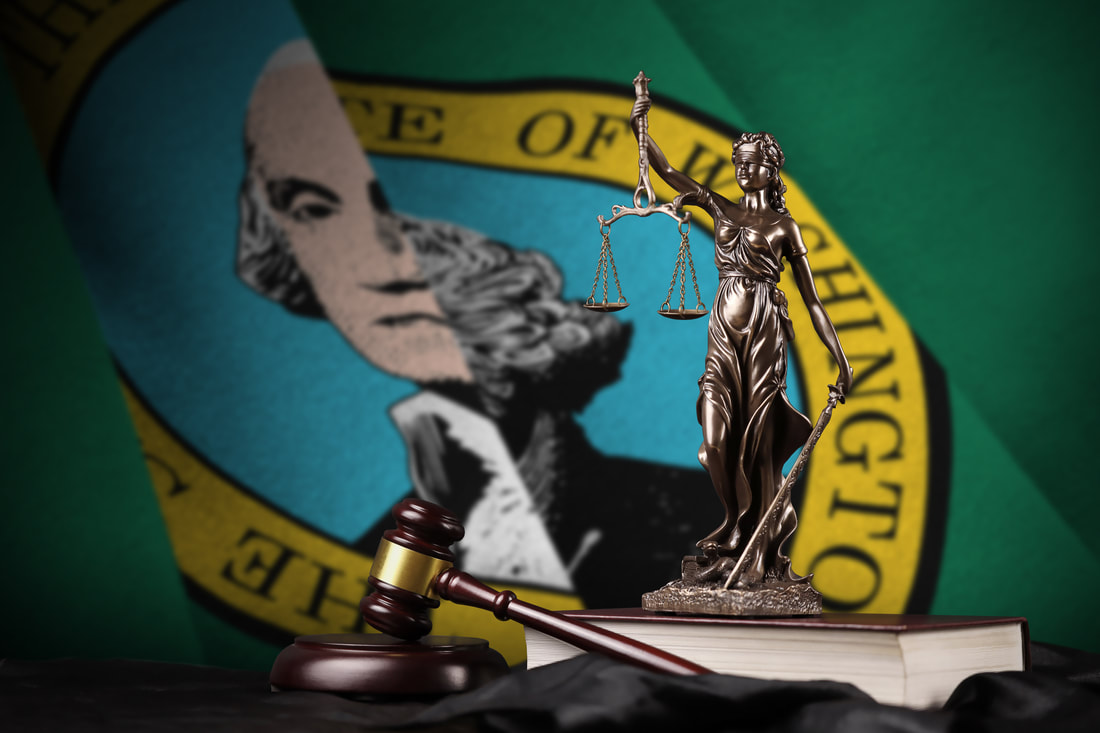|
A New York state judge blocked cannabis regulators from enforcing an emergency rule adopted over the summer aimed at hemp-derived intoxicants, siding with drink makers who say the rule was unsupported and could drive them out of business. In an order filed Thursday, Justice Thomas Marcelle granted a bid led by North Fork Distribution Inc., which does business as Cycling Frog, for a preliminary injunction against the New York State Cannabis Control Board and Office of Cannabis Management, finding that the agencies didn't provide sufficient reasoning for the sudden emergency rule made in July. According to the order, the suit stems from a CCB decision on July 19, which put into place regulations regarding the amount of THC that hemp-derived products could contain. The petitioners—who make hemp-derived beers and other drinks with THC levels that the judge said rendered them "potent intoxicants"—have argued that the emergency rule violated the State Administrative Procedure Act and the state's Cannabis Law. Justice Marcelle wrote Thursday that the question here is not whether the state agencies can adopt regulations for hemp-infused products, but whether they followed the correct procedure in enacting the emergency regulations, which require that they "fully articulate in writing" the circumstances that constitute an emergency. According to the order, the one-and-a-half-page justification given in July does not suffice, as it does not cite evidence or studies substantiating the idea that New Yorkers have been misled or harmed by the products, and its "parade of horribles" about the risk to children lacks any specific facts on which the concerns could be based. The agencies have submitted evidence in response to the suit, but even considering those filings, which cite regulatory analyses of other states and anecdotes of harm, the judge found that they have "at best only reasonably forecasted the potential for trouble," which is not enough to justify the decision to immediately implement the emergency regulation, rather than waiting for the public comment period to finish. Justice Marcelle also found that the petitioner companies stand to suffer irreparable injury, as the regulations could force them out of business, or at the least cause a delay that would erase the advantage they had from being the first to market for their products. Any monetary damages are too speculative to calculate or prove at this point, the judge wrote, so they cannot be adequately compensated by a dollar figure. The judge added that the companies persuasively argued that the true aim is not to protect public health, but rather to push consumers away from the hemp-derived products the petitioners make, heretofore unregulated, and toward cannabis companies that are licensed — and taxed — by the agencies. While the balance of equity and who is more harmed by the presence or absence of the injunction is a closer call, Justice Marcelle sided with the companies, citing how without the injunction, workers for the companies will suddenly be without work and likely find difficulty supporting their families. "The court hoped respondents would have acted with deliberate speed in issuing permanent regulations," the judge wrote. "But they have not done so. Consequently, the court must exercise its discretion." Gary I. Lerner of Davidoff Hutcher & Citron LLP, representing the companies, said Monday that they are pleased with the ruling. "Cycling Frog and the other Plaintiffs look forward to engaging with the State to work productively toward the adoption of permanent rules which serve the twin interests of protecting the public, health and safety, while at the same time fostering the growth of the hemp industry in New York as contemplated by the Federal Farm Bill and New York's Cannabis Law," Lerner told Law360. A spokesperson for the Office of Cannabis Management declined to comment Monday. The petitioners are represented by Gary I. Lerner and Joseph N. Polito of Davidoff Hutcher & Citron LLP. The state defendants are represented by Letitia James, Ryan W. Hickey and Alexander Powhida of the New York Attorney General's Office. The case is North Fork Distribution Inc. et al. v. New York State Cannabis Control Board et al., index number 907325-23, in the New York State Supreme Court, County of Albany.
0 Comments
The Oregon Supreme Court has approved a unique new way to become a licensed attorney that doesn't involve passing the current bar exam.
On Tuesday, the court unanimously approved the Supervised Practice Portfolio Examination, or SPPE, which enables the Oregon Bar to admit law school graduates to practice following an assessment of their demonstrated ability to practice law. The change comes after years of work on attorney licensure reform by two law schools, the Oregon Supreme Court, the Oregon State Bar, the Oregon Board of Bar Examiners and many volunteer lawyers, a bar spokesperson said Wednesday. "It's been a long road," Brian Gallini, Willamette University College of Law dean and longtime advocate for a more equitable and skills-focused approach to attorney licensure, told Law360 Pulse Wednesday in an interview. With SPPE, upon successful completion of 675 hours of practice under the supervision of an experienced attorney — the time most people spend studying for the bar exam — candidates for licensure can submit a portfolio of work to the Board of Bar Examiners for an independent evaluation of their proficiency, Willamette said in an announcement. Members of the Oregon legal community began questioning whether the state should consider a new approach to licensure shortly after the Oregon Supreme Court's historic vote to grant emergency diploma privilege to the Class of 2020 at the height of the COVID-19 pandemic. Gallini said the SPPE provides a more inclusive and scalable alternative to the bar exam. At first, opponents criticized the SPPE as reducing the standard to become a lawyer, but Gallini said that isn't the case at all. "The way that we're testing through the Uniform Bar Exam is through multiple choice and closed-book essay questions," he added. "But that's not how you practice law. There's an overwhelming disconnect between what students learn in law school and the actual practice of law." The Supreme Court referred questions to the Oregon State Bar. "The court's decision yesterday draws on years of work that we believe will create a highly effective means to assess an applicant's competence and readiness to practice," a bar spokesperson told Law360 Pulse in an email. "It's an exciting change." David Friedman, a Willamette law professor and associate dean for strategic initiatives, said SPPE will have a profound impact on both the legal profession and the law school. "For the legal profession, this is a significant advancement in that it aligns licensure criteria with teaching and measuring the skills that established lawyers tell us that new lawyers need," Friedman said in a statement. "The bar exam became a convenient way to test and evaluate aspiring lawyers en masse, but over time, the exam began to really depart from testing the knowledge and skills that new lawyers need." Friedman added that the bar exam alternative will help motivate law schools to better teach students the skills they will need to serve clients effectively. The SPPE gives Willamette more room to teach experiential courses. "In other words, we will provide both the intellectual foundation and the skill foundation for new lawyers, moving us closer to the same way that other professions train and test their newest members," Friedman said. The cost of the current bar exam — alongside the need to defer income and take time off from work to study — has been a barrier to becoming a licensed member of the legal profession for many people, according to the law school. Lucy Jensen, a member of Willamette's College of Law Leadership Cabinet, said in a statement that SPPE will be a much more meaningful and helpful measure of law graduates' performance. "It will, I believe, be a more accurate indicator of what graduates have learned about the actual practice of law," Jensen said, adding, "We attorneys constantly learn from one another and, collectively, this will broaden our approach to our practice of law, expand our skill set, and open our perspectives to better understand our clients and to more effectively represent them." Meanwhile, the law school said it's gathering a roster of interested alumni to serve as supervising attorneys to support prospective licensees in every area of law, and in all areas of the state. "Oregon has a serious need for new lawyers of all kinds," Friedman said. "Every step taken in the direction of making Oregon a great place to launch a meaningful legal career will take us a step closer toward better serving the public." Read more at: https://www.law360.com/nativeamerican/articles/1764736?nl_pk=6b853f46-07d8-4573-90eb-84585db2bfb2&utm_source=newsletter&utm_medium=email&utm_campaign=nativeamerican&utm_content=2023-11-09&read_main=1&nlsidx=1&nlaidx=4?copied=1The Oregon Supreme Court has approved a unique new way to become a licensed attorney that doesn't involve passing the current bar exam. On Tuesday, the court unanimously approved the Supervised Practice Portfolio Examination, or SPPE, which enables the Oregon Bar to admit law school graduates to practice following an assessment of their demonstrated ability to practice law. The change comes after years of work on attorney licensure reform by two law schools, the Oregon Supreme Court, the Oregon State Bar, the Oregon Board of Bar Examiners and many volunteer lawyers, a bar spokesperson said Wednesday. "It's been a long road," Brian Gallini, Willamette University College of Law dean and longtime advocate for a more equitable and skills-focused approach to attorney licensure, told Law360 Pulse Wednesday in an interview. With SPPE, upon successful completion of 675 hours of practice under the supervision of an experienced attorney — the time most people spend studying for the bar exam — candidates for licensure can submit a portfolio of work to the Board of Bar Examiners for an independent evaluation of their proficiency, Willamette said in an announcement. Members of the Oregon legal community began questioning whether the state should consider a new approach to licensure shortly after the Oregon Supreme Court's historic vote to grant emergency diploma privilege to the Class of 2020 at the height of the COVID-19 pandemic. Gallini said the SPPE provides a more inclusive and scalable alternative to the bar exam. At first, opponents criticized the SPPE as reducing the standard to become a lawyer, but Gallini said that isn't the case at all. "The way that we're testing through the Uniform Bar Exam is through multiple choice and closed-book essay questions," he added. "But that's not how you practice law. There's an overwhelming disconnect between what students learn in law school and the actual practice of law." The Supreme Court referred questions to the Oregon State Bar. "The court's decision yesterday draws on years of work that we believe will create a highly effective means to assess an applicant's competence and readiness to practice," a bar spokesperson told Law360 Pulse in an email. "It's an exciting change." David Friedman, a Willamette law professor and associate dean for strategic initiatives, said SPPE will have a profound impact on both the legal profession and the law school. "For the legal profession, this is a significant advancement in that it aligns licensure criteria with teaching and measuring the skills that established lawyers tell us that new lawyers need," Friedman said in a statement. "The bar exam became a convenient way to test and evaluate aspiring lawyers en masse, but over time, the exam began to really depart from testing the knowledge and skills that new lawyers need." Friedman added that the bar exam alternative will help motivate law schools to better teach students the skills they will need to serve clients effectively. The SPPE gives Willamette more room to teach experiential courses. "In other words, we will provide both the intellectual foundation and the skill foundation for new lawyers, moving us closer to the same way that other professions train and test their newest members," Friedman said. The cost of the current bar exam — alongside the need to defer income and take time off from work to study — has been a barrier to becoming a licensed member of the legal profession for many people, according to the law school. Lucy Jensen, a member of Willamette's College of Law Leadership Cabinet, said in a statement that SPPE will be a much more meaningful and helpful measure of law graduates' performance. "It will, I believe, be a more accurate indicator of what graduates have learned about the actual practice of law," Jensen said, adding, "We attorneys constantly learn from one another and, collectively, this will broaden our approach to our practice of law, expand our skill set, and open our perspectives to better understand our clients and to more effectively represent them." Meanwhile, the law school said it's gathering a roster of interested alumni to serve as supervising attorneys to support prospective licensees in every area of law, and in all areas of the state. "Oregon has a serious need for new lawyers of all kinds," Friedman said. "Every step taken in the direction of making Oregon a great place to launch a meaningful legal career will take us a step closer toward better serving the public." Texas Attorney General Ken Paxton has launched a series of lawsuits against five cities that have marijuana amnesty or nonprosecution policies, saying the municipalities, including Austin and Denton, were breaking state law by refusing to prosecute pot offenses. The other cities named in the lawsuits — filed across several Texas state courts — include San Marcos, Killeen and Elgin, all of which have ordinances against prosecuting certain charges relating to cannabis. The Texas Attorney General's Office said in a Wednesday press release announcing the suits that the municipalities' policies directly violate a state law that bars cities and police departments from not fully enforcing state drug laws. The lawsuits name several city officials in the five cities, including several mayors, city council members and police chiefs. Each lawsuit asks for temporary and permanent injunctions to get the different cities' ordinances and policies repealed. The cities' laws run counter to the Texas Constitution, Paxton says, because they are inconsistent with laws enacted by the state legislature. In addition to repealing the ordinances, the attorney general's office has asked multiple courts across the state to order the cities to enforce marijuana laws and bar punishment for employees who enforce the laws. "I will not stand idly by as cities run by pro-crime extremists deliberately violate Texas law and promote the use of illicit drugs that harm our communities," Paxton said in a statement Wednesday. Paxton argues that sovereign immunity doesn't apply to these cities because they didn't have the authority to issue the ordinances in the first place. The lawsuits have sued city leadership in their official capacities. The cities named in the suit have each adopted various ordinances that limit prosecution of marijuana offenses. Austin adopted an ordinance stating that local police would no longer issue citations or arrests for misdemeanor marijuana possession. That ordinance came from a ballot initiative that Austin citizens passed in 2022. In 2022, Denton voters passed a similar ballot initiative, and the city adopted the ordinance. At the time, Denton's city manager warned that the new ordinance would go against state law, according to the attorney general's office. When asked for a comment, a spokesperson for the City of Austin said Thursday that the lawsuit is related to the voter-approved initiative petition, but didn't comment further. "We are aware of the lawsuit challenging Austin's policies related to low-level possession of marijuana," the spokesperson said. When asked for a statement, representatives from the cities of San Marcos, Denton and Killeen declined to comment. A representative from the City of Elgin didn't immediately respond to a request for comment. The Texas Attorney General's Office and the attorney general's counsel didn't immediately respond to a request for comment. Copies of the complaints were issued by the attorney general's office and couldn't be independently verified by Law360. The State of Texas is represented by Ken Paxton, Brent Webster, Grant Dorfman, Ralph Molina, Ryan D. Walters, Heather Dyer and Jacob Przada of the Office of the Attorney General of Texas. Counsel information for the Texas cities wasn't immediately available. The Austin case is The State of Texas v. City of Austin et al. in the District Court of Travis County, Texas. The Denton case is State of Texas v. City of Denton et al. in the District Court of Denton County, Texas. The Killeen case is The State of Texas v. City of Killeen et al. in the District Court of Bell County, Texas. The San Marcos case is The State of Texas v. City of San Marcos et al. in the District Court of Hays County, Texas. The Elgin case is The State of Texas v. City of Elgin et al. in the District Court of Bastrop County, Texas. Flint residents and the last remaining engineering defendant in sprawling litigation over the city's water crisis announced Thursday they had reached a $25 million deal that would avoid an upcoming trial, with the engineering firm saying more than half of Flint residents will get a payout. Veolia North America and a class of 45,000 Flint property owners, businesses and adults announced the settlement separately Thursday morning, less than two weeks before a trial was set to begin in Ann Arbor.The settlement with Veolia brings the total amount of settlements reached on behalf of Flint plaintiffs to more than $655 million, class attorneys said. The class action resulted in a landmark $625 million settlement against the state of Michigan in 2021. The class also settled with private engineering firm Lockwood Andrews & Newnam in October for $8 million. The class sought final approval of that settlement earlier this week. The class alleged in 2016 that Veolia failed to identify corroding pipes and warn government officials, exacerbating the water crisis. Had Veolia recommended remediation, the class said, the contamination could have ended sooner. The residents have said Veolia had a duty to warn users of the water when it voluntarily took on an investigation of Flint's water. Veolia has maintained that state and local government actors are to blame for the crisis, saying it was hired as a consultant months after the city switched to using Flint River water. Veolia said it made recommendations to the city, which were ignored by officials. The firm has also alleged that the city withheld data from it. The agreement includes payment of $1,500 per individual minor claimant represented by class counsel, not to exceed $1.5 million, according to Veolia. The class and Veolia had been preparing for a monthslong issues trial in front of a Michigan federal jury, scheduled to start Feb. 13. On Thursday, they jointly filed a stipulation to stay the case pending final approval of the settlement, which U.S. District Judge Judith E. Levy granted. Ted Leopold, co-lead class counsel at Cohen Milstein Sellers & Toll PLLC, said in a statement that the settlement is an important step to help bring a close to the "horrible year of nightmares for the Flint community." "Our fight for justice continues as we look to hold the EPA, the final bad actor in this long and difficult saga, accountable," Leopold said. Paul Novak of Weitz & Luxenberg PC, an attorney for the plaintiffs, said Thursday the deal is one more step in getting justice for the citizens of Flint. "Our next priority will be to obtain judicial approval of the settlement and, upon approval, expeditiously disseminate settlement funds to the people of Flint," Novak said. A Veolia spokesperson said the company welcomes moving forward with the settlement and said it "did nothing wrong in Flint," reiterating its position that the crisis was caused by government officials. "The people of Flint and all who were affected deserve justice," the company said in a statement. "It is a disgrace that nearly a decade since the crisis was set in motion, still no person who was actually responsible has been held accountable." The settlement announced Thursday does not resolve claims against Veolia by individual plaintiffs, the firm said, and claims from four individual children continue. The four children and Veolia and Lockwood Andrews & Newnam went to trial in 2022, with the children alleging the firms fell short of their professional standard of care and prolonged the water crisis. The four children drank Flint water and say they were poisoned by lead. That landmark bellwether case ended in a mistrial in August 2022 after jurors said their mental and physical health reached a breaking point after six days of deliberation. The trial lasted for six months and featured multiple experts and family members of the children. The jury heard from geochemists, water engineers, neurologists and other experts. The city was in dire financial conditions and was going through a string of state-appointed emergency managers when it decided to leave its long-standing Detroit Water and Sewerage Department hookup, which took water from Lake Huron, and go instead to the Flint River. Rivers are less chemically stable than lakes, and the Flint River was known to be more acidic in general than Lake Huron, the jury at the time heard. The water ended up leaching lead from the inside of pipes and bringing it into buildings in Flint, the jury was told. Flint made the water supply switch in April 2014. Residents complained about water quality throughout the rest of the year. The city of Flint hired Veolia months later to conduct a limited-scope drinking water quality analysis. Veolia has said that the city did not provide all the data, including test results showing high lead levels. In March 2015, Veolia recommended corrosion control, but residents allege Veolia did not warn the city the water was unsafe and needed immediate attention. The residential water supply was switched back to the Detroit Water and Sewerage Department later that year. Veolia argued at the time that it did what it was hired to do — a weeklong assessment of the water system, followed by recommendations. The next bellwether trial with the children is expected to begin in October. In the now-canceled February trial, numerous experts and former officials who were previously named in the suit but have since settled were expected to testify. The trial was set to address five questions: Did Veolia breach its duty of care? If so, did that breach of care contribute to causing or prolonging the contaminated water in Flint? Were the contaminated water conditions capable of causing harm to Flint residents and properties? Were the harmful water conditions in Flint a result of Veolia or Lockwood Andrews & Newnam's breach? And did any nonparty contribute to causing or prolonging the contaminated water conditions, and if so, at what percentage of fault? Over the last few months, Veolia and the class were hammering out with the court what topics they could present to the jury and who could testify. Recently, Judge Levy, who would have presided over the trial, ruled that Veolia could point fingers at other nonparties, such as government leaders and federal agencies, for fault in the crisis. Veolia alleged other officials knew about the contaminated water and did not try to immediately fix it or warn residents. The firm proposed numerous nonparties at fault, such as the U.S. Environmental Protection Agency and some of its staff, U.S. Department of Justice Civil Division attorneys, the state of Michigan, former Gov. Rick Snyder and his senior staff, the Michigan Department of Environmental Quality and more. The jury could have assigned percentages to the nonparties at fault. Judge Levy also ruled that the jury could have seen data regarding children's blood toxicity levels during the water crisis, even though the data was for children up to 6 years old, and that age group was not part of the class. Judge Levy said that data was among the only evidence available about changes in blood levels during the water crisis class period. The class could have cited a case study on engineering ethics, a board of ethics review that laid out firms' ethical requirement to report to appropriate authorities any risks to public health and safety. The class also could have included testimony about Veolia's motive or intent to take on the Flint project, Judge Levy ruled last month. In October, Judge Levy said an epidemiologist proposed by the residents as an expert wouldn't be able to provide testimony about the effects of lead exposure on fetuses in the trial, finding that testimony would not have been relevant to the class claims. In January, the judge also excluded a plaintiffs' expert who was set to testify that the corrosive water caused hair loss and skin rashes, saying the expert's reliance on a single nonrandom study rendered the expert's opinions unreliable. In a separate action not involving Veolia or Lockwood Andrews & Newnam, civil rights and environmental groups allege the city of Flint is still not done investigating or replacing lead service lines for residents and hasn't determined which homes need additional restoration work. The groups have said the city has failed to implement the terms of a $97 million settlement agreement to replace pipes. The city said the pandemic impacted its ability to conduct outreach and do construction. The city also said last year that it had just under 2% of lead service line replacements to complete. Criminal charges against Snyder and other officials for their alleged role in the Flint water crisis were unsuccessful. The Michigan Supreme Court in October declined to revive criminal charges against Snyder, effectively closing the state's prosecution of officials accused of botching the city's response to the toxic water. The Michigan Supreme Court also overturned the indictments of former Michigan Department of Health and Human Services officials Nancy Peeler and Nicholas Lyon and a former aide to Snyder, Richard Baird. After that ruling, other state courts began to dismiss the charges against other charged officials, including Snyder's former chief of staff Jarrod Agen, former Flint emergency managers Gerald Ambrose and Darnell Earley, and Eden Wells, former chief medical executive at the state Department of Health and Human Services. According to the city's report last August, Flint has had seven years of complying with lead standards in the Safe Drinking Water Act. The EPA has proposed replacing all lead pipes throughout the country within the next 10 years. Pitt McGehee Palmer Bonanni & Rivers PC's Michael Pitt, interim co-lead counsel for the class, said in a statement that the settlement can help the community move forward. "From the beginning, our efforts were focused on centering the Flint community and ensuring that the outcome was fair and equitable for these amazing people who have suffered greatly over the past few years," Pitt said. "We're glad to see this settlement reflecting our efforts and goal of setting this community up to move forward and rebuild." Class plaintiffs are represented by Cohen Milstein Sellers & Toll PLLC, Pitt McGehee Palmer Bonanni & Rivers PC, Weitz & Luxenberg PC, Susman Godfrey LLP, Motley Rice LLC, the Law Offices of Teresa A. Bingman PLLC, Bronstein Gewirtz & Grossman LLC, Law Offices of Deborah A. Labelle, the NAACP, Goodman Hurwitz, Trachelle C. Young & Associates PLLC, The Dedendum Group, McKeen & Associates PC, Law Office of Cirilo Martinez PLLC, Shea Aiello PLLC, Cynthia M. Lindsey & Associates PLLC, McAlpine PC and Abood Law Firm. Veolia is represented by Michael A. Olsen of Mayer Brown LLP and James M. Campbell and Alaina Devine of Campbell Conroy & O'Neil PC. The case is In re: Flint Water Cases, case number 5:16-cv-10444, in the U.S. District Court for the Eastern District of Michigan. The North Carolina Court of Appeals ruled Tuesday that local officials can't get rid of a Confederate statue outside a county courthouse, finding the statue is protected by a state law barring the removal of historic monuments. In a published opinion, the three-judge panel found the 30-foot tall statue of a Confederate soldier that sits in front of the Alamance County courthouse in Graham, North Carolina, falls within the state's Monument Protection Law, which prevents the removal of historic monuments on public property except under specific circumstances. As such, the panel said, Alamance County officials have "no authority to move the monument" in the face of public pressure. "Regardless of some commission members' comments or misunderstandings of their legal ability to move the monument, the rule of law does not change," the opinion states. "At all times, the Monument Protection Law has required the county to leave the monument in its current place. Defendants' hands are tied — even if they wanted to move the monument, they could not." As a result, the panel affirmed summary judgment favoring the Alamance County Board of Commissioners and rejected arguments by the NAACP, several residents and local advocacy groups that sought removal of the statue, which depicts an armed soldier with an inscription to "Our Confederate Soldiers" and is engraved with a pair of Confederate flags. In their lawsuit, the NAACP had asserted claims for several violations of the North Carolina Constitution, including the equal protection clause, and misuse of taxpayer money. Though it survived dismissal, Superior Court Judge Forrest D. Bridges ultimately granted summary judgment to the county after finding officials were bound by the monument law. The NAACP then appealed, arguing it was unconstitutional to continue to maintain the monument despite the message it sends to Black residents about the administration of justice in Alamance County. During oral arguments in November, counsel for the NAACP noted the monument sits in proximity to where a prominent Black citizen was lynched in 1870, and that speakers at the dedication ceremony in 1914 described its purpose as the commemoration of the white "race and blood." The NAACP referred to it as a monument to white supremacy as opposed to an object of remembrance for military service protected by the monument law. But Tuesday's panel disagreed, saying the statue sits on public property and "commemorates military service that is part of North Carolina's history." Service in the Confederate Army counts as military service in the eyes of the federal government, the panel said, and North Carolina also recognizes "Confederate Memorial Day" as a public holiday. There are few exceptions to the Monument Protection Law, none of which apply to the statue at the Alamance County courthouse, the appeals court said, adding that the trial court otherwise correctly determined that the statue was not being maintained with a discriminatory purpose. According to the opinion, the commissioners' intent in deciding not to relocate the statue is "irrelevant." "Even if some of the defendants had a discriminatory intent, as alleged by plaintiffs, that intent was not the reason that the monument has remained in front of the courthouse — the monument has remained in place because the Monument Protection Law forbids defendants from moving the monument," the panel said. County commissioners were also justified in using taxpayer dollars for law enforcement to respond to protests at the monument and to erect a fence to protect it, the appeals court found, calling them "expenditures for public safety and protection of county-owned property" that "serve a public purpose." Finally, the panel rejected the NAACP's claims that the upkeep of the monument violates the Open Courts Clause because it sends a negative message to Black residents. "We conclude that the Open Courts Clause does not prohibit the placement of an object of historical remembrance in or around a courthouse, though some may find offense," the panel said. Counsel for Alamance County directed a request for comment to a county representative, who declined to comment Tuesday. Counsel for the NAACP did not immediately respond to a request for comment. Judges Donna Stroud, Chris Dillon and Valerie J. Zachary sat on the panel for the North Carolina Court of Appeals. The NAACP is represented by Mark C. Fleming, Ronald C. Machen Jr., Karin Dryhurst and Marissa M. Wenzel of WilmerHale, Stuart M. Paynter, Gagan Gupta and Sara Willingham of The Paynter Law Firm PLLC and Abraham Rubert-Schewel of Tin Fulton Walker & Owen PLLC. Alamance County and affiliated individuals are represented by Christopher J. Geis of Womble Bond Dickinson and Natalia K. Isenberg of Teague Campbell Dennis & Gorham LLP. The case is North Carolina State Conference of the NAACP v. Alamance County et al., case number 23-262, in the North Carolina Court of Appeals. The state of Washington's Supreme Court has approved plans for law school students and graduates to become lawyers without taking the bar exam, forging alternative pathways a state task force has recommended to help make legal licenses more accessible to people of color and other historically marginalized groups. The state's high court issued a pair of orders Friday adopting the Washington State Bar Licensure Task Force's proposal outlining a process for aspiring lawyers to skip the bar exam, either by working as a law firm intern during law school or as an apprentice to an attorney afterward — in addition to completing other coursework requirements. According to a news release issued by the state court system Friday, Washington is the second state in the country, after Oregon, to officially approve a path to legal licensing without the bar exam. Once the state court system has worked out the details of implementing the plan, law school students will be able to graduate practice-ready by completing 12 qualifying skills credits and 500 hours of work as a licensed legal intern, as well as submitting a portfolio of that work. Law school graduates will have the option of bypassing the bar exam by participating in a six-month apprenticeship under the supervision of a qualified attorney and completing three standardized courses during that time. The plan will also provide an alternative path for those who are enrolled in a non-law-school course of study and participating in the state's Admission and Practice Rule 6, or APR 6, law clerk program, which already allows participants to work and study under the tutorship of an experienced lawyer or judge instead of going to law school. New standardized educational materials and benchmarks will be established for APR 6 clerks who seek to bypass the bar exam, given that the current program allows tutors to create their own curriculum. To skip the bar exam, APR 6 participants would also have to complete the 500-hour internship requirement, which could be done at the same time as their clerkships. The task force was chartered in November 2020 by then Chief Justice Debra Stephens to study potential bar exam alternatives amid questions about the traditional test process, which had been adjusted due to the COVID-19 pandemic. After gathering data and testimony from scholars and other experts, the task force unveiled its proposal to the justices last fall. Its final report, attached to the high court's Friday orders, concluded the bar exam "disproportionately and unnecessarily blocks historically marginalized groups from entering the practice of law" and "is at best minimally effective for ensuring competent lawyers." "These recommendations come from a diverse body of lawyers in private and public practice, academics, and researchers who contributed immense insight, counterpoints and research to get us where we are today," said Justice Raquel Montoya-Lewis, a task force co-chair, in the news release. "With these alternative pathways, we recognize that there are multiple ways to ensure a competent, licensed body of new attorneys who are so desperately needed around the state." Now that the recommendations have been adopted, the court will partner with the Washington State Bar Association on an implementation plan and timeline — a process that will likely include the outreach and partnerships with other legal professionals and institutions, said the news release. The state Supreme Court also approved the task force's recommendation of adopting the National Conference of Bar Examiners' NextGen bar exam when it's rolled out in July 2026, a revised test that's expected to require less memorization, cover fewer topics, focus more on real-world application of the law and shift away from the current exam's emphasis on speed. The new version of the exam is also expected to encompass a broader range of question types, including essay, short answer and multiple choice. Additionally, the state's high court agreed to lower the minimum bar passage score for the existing exam from 270 back down to 266, which was temporarily the cutoff during the pandemic. Seattle University School of Law Dean Anthony Varona, who co-chaired the task force with Justice Montoya-Lewis, said in a statement Friday that she's "delighted but not surprised" that the state's high court approved the task force recommendations. "We are fortunate in Washington to have a Supreme Court that time after time has used innovative approaches to correct injustice and expand the law and legal services to meet the needs of the underserved and marginalized," Varona said. Several other states are also exploring alternatives, including California, where the state bar association endorsed a pilot program last fall that could allow law students to become lawyers by submitting a portfolio of legal work undertaken with supervision over roughly six months. The Montana Supreme Court on Wednesday struck down four state laws that challengers claimed hindered Native Americans and students from participating in the state's election process, affirming a lower court's ruling that the 2021 legislation violated fundamental voting rights. In a 4-3 ruling, the state's high court affirmed that the laws — House Bills 176, 530 and 506, as well as Senate Bill 169 — are unreasonable, arbitrary and interfere with an individual's right to vote under the Montana Constitution. "Today's decision is a resounding win for tribes in Montana who have only ever asked for a fair opportunity to exercise their fundamental right to vote," Native American Rights Fund staff attorney Jacqueline De León, counsel for the plaintiff tribes, said in a statement Wednesday. "Despite repeated attacks on their voting rights, tribes and Native voters in Montana stood strong, and today the Montana Supreme Court affirmed that the state's legislative actions were unconstitutional. Native voices deserve to be heard, and this decision helps ensure that happens." Montana Secretary of State Christi Jacobsen had appealed two orders in 2022 from the Thirteenth Judicial District Court that gave wins to the state's Democratic Party, various Native American tribes and civil rights groups by determining the laws unconstitutional. According to the 125-page opinion, H.B. 176 would have ended Election Day registration by restricting access to absentee ballots, while H.B. 530 required the secretary of state to adopt a rule banning absentee ballot collection on that day. H.B. 176 also changed the state's voter registration deadline from the close of polls on Election Day to noon the day prior, the opinion said, while S.B. 169 revised rules to require students to show additional documentation in addition to their school identification to vote. The plaintiffs include the Montana Democratic Party, nonprofits Western Native Voice and Montana Youth Action, as well as the Blackfeet Nation, the Confederated Salish and Kootenai Tribes, the Fort Belknap Indian Community and the Northern Cheyenne Tribe. The groups and tribes sued Jacobsen's office in May 2021 in separate complaints in response to the state's passage of the bills, alleging they violated the Montana Constitution, while seeking an injunction to stop the secretary of state from enforcing the laws. The courts eventually consolidated the lawsuits. In the 4-3 ruling on Wednesday, the majority opinion written by Justice Mike McGrath and signed by Justices Laurie McKinnon, Ingrid Gustafson and Jim Shea, heavily relied on an interpretation that Montana's Constitution guarantees stronger voter protections than the U.S. Constitution. "This court can diverge from the minimal protections offered by the United States Constitution when the Montana Constitution clearly affords greater protection — or even where the provision is nearly identical," Justice McGrath wrote. The state's high court, Justice McGrath said, will undoubtedly continue to "whistle-down legislative enactments that exceed the clear constitutional limitations on the exclusive power and authority of the Legislature." However, in doing so, it's important to preserve the "sacrosanct separation of powers" dictated by the state's Constitution "however distasteful in the political firestorm of the day," Pointing to evidence during the district's court's nine-day trial in the litigation, Justice McGrath said the laws place an undue burden on the state's residents right to vote, and in many instances, threatened to disenfranchise young, Native American voters, in particular. "The Montana Constitution has contained a clear, explicit, unequivocal, and strong protection of the right to vote since before statehood: 'All elections shall be free and open, and no power, civil or military, shall at any time interfere to prevent the free exercise of the right of suffrage." Jonathan Topaz, a staff attorney with the ACLU's Voting Rights Project that helped to represent the plaintiffs, described Wednesday's opinion as a great victory for their clients and all Native Americans in Montana that are simply seeking the ability to exercise their fundamental rights to vote. "Once again, courts have struck down the Montana Legislature's attempts to unconstitutionally burden the constitutional rights of Native Americans across the state. We will continue to fight for Native American voters in Montana and across the country to preserve their fundamental, constitutional right to vote," Topaz said. Dissenting in part in the ruling were Justices Beth Barker, Dirk Sandefur and Jim Rice, who said that the plaintiffs did not meet the burden to establish the facial invalidity of H.B. 506. The bill makes clear, they said, that although a person may register to vote if they will be 18 on or before Election Day, they may not receive or cast a ballot until they meet the residence and age requirement." "The court acknowledges that this law does not interfere with the right to vote, as by its terms it prevents no one from voting and by its operation did not — according to any record evidence — prevent anyone from voting," Justice Barker wrote in her partial dissent. Courts have no constitutional power or authority to act as a super-legislature that second-guesses "the wisdom, need and propriety" of legislative enactments that may touch upon economic problems, business affairs or social conditions, the dissenting justices said. However, in "an unprecedented exercise of unrestrained judicial power overriding public policy determinations made by the Legislature in the exercise of its constitutional discretion," the majority panel said it was striking down the legislative enactments "on the most dubiously transparent of constitutional grounds." A representative from Jacobsen's office couldn't immediately be reached for comment Thursday. Montana Secretary of State Christi Jacobsen is represented by the state's Office of the Attorney General, Dale Schowengerdt of Landmark Law PLLC and Leonard H. Smith, Mac Morris, E. Lars Phillips and John Semmens of Crowley Fleck PLLP. The Montana Democratic Party is represented by Peter Michael Meloy of Meloy Law Firm, Matthew Gordon of Perkins Coie LLP and Abha Khanna, Jonathan P. Hawley and Marilyn Gabriela Robb of the Elias Law Group LLP. Western Native Voice, Montana Native Vote, the Blackfeet Nation, the Confederated Salish and Kootenai Tribes, the Fort Belknap Indian Community and the Northern Cheyenne Tribe are represented by Alex Rate and Akilah Deernose of the ACLU of Montana, Jacqueline De Leon and Samantha Kelty of the Native American Rights Fund, Theresa J. Lee of the Harvard Law School Election Law Clinic and Jonathan Topaz of the ACLU of New York. The Montana Youth Action, Forward Montana Foundation and Montana Public Interest Research Group are represented by Rylee Sommers-Flanagan of Upper Seven Law. The case is Montana Democratic Party et al. v. Jacobsen, case number DA 22-0667, in the Montana Supreme Court. Florida voters will have the opportunity to legalize recreational marijuana at the ballot box this November, after the state Supreme Court on Monday rejected a challenge brought by the state's attorney general and ruled that the proposal didn't violate a state rule restricting ballot measures to only one subject.The ruling comes after the high court twice rejected earlier efforts to put the question on a ballot after finding those two proposals to be misleading. This November's ballot question requires a supermajority approval of 60% from voters in order to pass. The state's highest court determined in a 5-2 decision that the ballot initiative did not violate Florida's single-subject rule, which holds that a ballot measure cannot ask voters to weigh in on more than one topic in a single vote, simply because it sought to legalize pot and regulate its sale. "Allowing businesses to distribute personal-use marijuana, and authorizing individuals to possess it, are logically and naturally related as part of a dominant plan or scheme," Justice Jamie R. Grosshans wrote for the majority. "Legalization of marijuana presumes the product will be available for the consumer." The opinion continued, "Selling and possessing marijuana appear, for better or worse, directly connected, and we cannot say that an amendment addressing both components violates the single-subject requirement." The majority also rejected an argument advanced by the measure's opponents that the ballot initiative deceived voters by implying that the recreational ballot question would authorize new businesses to sell marijuana beyond those already licensed under the existing medical cannabis program. "We do not believe the summary would confuse a voter into thinking that the Legislature is required to authorize additional licenses or that the amendment itself establishes a licensing scheme," the majority opinion said. Finally, the justices repudiated the claim advanced by the initiative's opponents that the ballot measure was "facially invalid" under the U.S. Constitution due to the federal prohibition on marijuana in the Controlled Substances Act. "We decline to make that broad finding here," Justice Grosshans wrote. "A detailed analysis of the potential conflict between sections of this amendment and federal law is a task far afield from the core purpose of this advisory proceeding under the Florida Constitution." In a dissent, Justice Renatha Francis wrote that the ballot initiative both misled voters and violated the single-subject rule. The dissent criticized the majority for adopting a "malleable standard" in finding that there was a shared purpose in legalizing cannabis and regulating its sale. "As it relates to this case, personal use and commercialization of marijuana aren't even two sides of the same coin," Justice Francis wrote. "If the matters directly connected to the 'subjects' are different, it's plain to me that the subjects themselves are different." The dissent continued, "At bottom, using marijuana as an individual and growing it for commercial sale and consumption implicate different criminal and regulatory schemes." In another dissent, Justice Meredith Sasso argued that the ballot initiative deceived voters by suggesting that it would, on its own, pave the way for other entities to begin selling legal marijuana in Florida, when this would actually require an act of the state Legislature. "Rather than being forthcoming with voters and explaining that the Legislature may choose to replicate the medical marijuana market by limiting entities that may sell marijuana to [medical marijuana treatment centers], the ballot summary instead suggests that the initiative affirmatively 'allows' other state licensed entities to sell," Justice Sasso wrote. Monday's ruling comes after the Florida Supreme Court, in 2021, killed two previous efforts to put a recreational cannabis legalization question before voters. Florida's Republican attorney general, Ashley Moody, brought this latest challenge to the proposed constitutional amendment in May 2023, saying that it failed to meet "substantive and technical requirements" under the state law. The Florida Chamber of Commerce joined Moody in opposition to the measure, claiming during oral arguments in November that it violated the single-subject rule by both legalizing personal use and possession of cannabis and by containing prongs about regulating its commercial sales. Support for the ballot initiative has come primarily from the Sunshine State's largest medical marijuana company, Trulieve, which has 134 dispensaries in the state and last week sold more than one-third of all legal medical marijuana in Florida, according to the state Department of Health's Office of Medical Marijuana. The company has poured approximately $40 million into the political action committee behind the effort, Smart & Safe Florida, according to documents collected by Florida's Department of State. Trulieve CEO Kim Rivers said in a statement on Monday, "We are thankful that the court has correctly ruled the ballot initiative and summary language meets the standards for single subject and clarity. We look forward to supporting this campaign as it heads to the ballot this fall." Rivers' statement continued, "Trulieve was the primary financial supporter of the initiative during the signature gathering effort and subsequent court challenge and is a proud supporter, alongside a strong coalition of other companies, of the next important phase to educate Floridians on the amendment and secure a yes vote on Amendment 3 this November." If approved by a 60% majority of voters in November, the initiative would take effect six months after Election Day and would amend the state constitution to legalize the recreational use of cannabis. Currently, medical dispensaries licensed in the state are authorized to sell cannabis products only to registered patients, and cannabis use and possession outside the medical marijuana program is still illegal. The proposal approved Monday does not include provisions for expungement of cannabis convictions or for allowing home cultivation of marijuana. The Florida justices' ruling was applauded by marijuana legalization advocates, who noted that the Sunshine State's 60% threshold for approval represented the next major challenge for reformers. "This is one of the most important cannabis legalization campaigns in recent years," said Matthew Schweich, executive director of the pro-legalization Marijuana Policy Project. "We have the opportunity to end the injustice of cannabis prohibition for over 22 million Americans." Also on Monday, the Florida Supreme Court allowed a ballot initiative that would preserve abortion access to be placed before voters. In response to the two rulings, Moody wrote on Twitter that the decisions highlight "the difficulties and divisiveness of allowing vague and misleading initiatives on the ballot." Moody continued, "We have argued from the beginning that these two new constitutional initiatives will mislead voters. We maintain that it will be an uphill battle to educate them. However, we respect the court's decisions." The marijuana legalization measure had the support of the libertarian think tank Cato Institute and the Medical Marijuana Business Association of Florida, both of which filed briefs urging the court to send the initiative to voters. The ACLU of Florida filed a brief that did not take a position on the merits of cannabis legalization, but urged the state Supreme Court to stop inserting itself into the ballot initiative process by deciding which proposed amendments are valid. In opposition, the Drug Free America Foundation, a nongovernmental organization that opposes cannabis legalization and advocates for drug abstinence, filed a brief arguing an amendment would be invalid because it conflicts with federal law. Smart & Safe Florida is represented by Glenn Burhans Jr. of Stearns Weaver Miller Weissler Alhadeff & Sitterson PA, Dan Humphrey, John F. Bash, Ellyde R. Thompson and Rachel G. Frank of Quinn Emanuel Urquhart & Sullivan LLP and Barry Richard. The Office of the Attorney General of Florida is represented by its own Ashley Moody, Henry C. Whitaker, Jeffrey Paul DeSousa and Daniel W. Bell. The case is Advisory Opinion to the Attorney General Re: Adult Personal Use of Marijuana, case number SC23-0682, in the Supreme Court of the State of Florida. As tribal communities and organizations across Indian Country prepare to observe the National Day of Awareness for Missing and Murdered Indigenous People (MMIP) in early May, the need for amplifying awareness of this crisis has never been more urgent. Originally focused on missing and murdered women Native women (MMIW), the acronym has evolved to MMIP to include girls, boys, men and two spirits who have all been affected by this tragic epidemic. The significance of the National Day of Awareness is deeply rooted in the story of Hanna Harris, a 21-year-old member of the Northern Cheyenne tribe who went missing in July 2013. The Montana congressional delegation advocated for the establishment of May 5 — which was Hanna’s birth date — to honor her and highlight the urgency of the MMIP crisis. Recent data from the Congressional Research Service paints a stark picture of the violent victimization experienced by American Indian/Alaska Native (AI/AN) men, with 82% reporting such experiences in their lifetimes. Nearly 3.5% of missing persons in the national database of missing persons were identified as AI/AN — significantly higher than their representation in the overall U.S. population. Recent events, such as the tragic disappearance and death of Lakota actor Cole Brings Plenty, the nephew of Yellowstone star Mo Brings Plenty, highlight the urgency of addressing the MMIP crisis in Indian Country. And it reminds us that there is still work to be done. Native News Online remains committed to covering MMIP stories and amplifying the voices of those affected by the crisis. We cannot do this important work alone. Your financial support will help fund our coverage of this and other important issues in Indian Country and be a force for change. Please consider making a one-time donation of $25 or more — though any amount, large or small, will help. We ask that you give from your heart. Glenn Youngkin, the Republican governor of Virginia, on Thursday vetoed a Legislature-approved bill that would have taxed and regulated the sale of adult-use cannabis, saying marijuana sales would pose a public health and safety risk to Virginians. The veto comes as Virginia enters its fourth consecutive year of legal cannabis limbo. The state under Democratic control legalized the drug for personal use and possession in 2021, but after Republicans won the Virginia House of Delegates and the governorship that November, lawmakers failed to implement a regulated market. "Attempting to rectify the error of decriminalizing marijuana by establishing a safe and regulated marketplace is an unachievable goal," Youngkin said in his veto statement. "The more prudent approach would be to revisit the issue of discrepancies in enforcement, not compounding the risks and endangering Virginians' health and safety with greater market availability." Youngkin added that he was vetoing the legislation because "states following this path have seen adverse effects on children's and adolescent's health and safety, increased gang activity and violent crime, significant deterioration in mental health, decreased road safety, and significant costs associated with retail marijuana that far exceed tax revenue." The governor's veto statement specifically cites intentional and accidental consumption of cannabis by children and the potential health consequences of adolescent marijuana use, while blasting other states' regulated cannabis markets for failing to adequately curb illicit sales or ensure product safety. The statement also alleges that cannabis use leads to a surge in violent crime, psychiatric disorders and traffic accidents. The vetoed bills — H.B. 698 and S.B. 448 — would have levied an 8% tax on cannabis sales, in addition to a 1.125% sales tax, while allowing localities to enact via ordinance their own 2.5% tax on sales. It would have empowered regulators with the Virginia Cannabis Control Authority to license up to 350 cannabis retailers, 100 processors and 125 cultivators. The bills were passed with simple majorities in each chamber, falling short of the two-thirds supermajority support necessary to overcome a governor's veto. "Allowing cannabis sales to remain illegal and unregulated is nonsensical," said Karen O'Keefe, director of state policies for the pro-legalization Marijuana Policy Project. "By vetoing this bill, Gov. Youngkin is forcing Virginia's residents to either cross the border into Maryland to purchase cannabis, giving them the economic benefits Virginia should be receiving, or turn to the illicit market, putting the buyers and sellers at risk." In 2021, Virginia made history as the first southern U.S. state to legalize marijuana for adult recreational use, when the Legislature approved the legalization proposal put forth by then-Gov. Ralph Northam, a Democrat. The law legalized possession and use of cannabis for adults 21 and over, but contained a reenactment clause requiring state lawmakers to re-approve prongs of the legislation that focused on licensing regulated cannabis retailers and other businesses. Unlike the vast majority of states that converted from a medical marijuana regime to adult-use legalization, Virginia did not allow its medical marijuana dispensaries to begin general retail sales to adults 21 and over. When Republicans took control of the House of Delegates and governorship in the November 2021 election, standing up the state's regulated cannabis retail market took a back seat. While under GOP leadership, the chamber nixed multiple legislative efforts aimed at establishing a regulated cannabis marketplace. A cannabis regulation bill passed the Democrat-controlled state Senate in 2023 on a largely party-line 24-16 vote, with two Republicans joining the Democratic majority to approve the bill and no Democrats voting against it, only for it to die in a GOP-controlled House of Delegates subcommittee. Prior to that, in 2022, Republicans on a Virginia House subcommittee defeated on a 5-3 party-line vote a bill that would have implemented a regulated adult-use cannabis market. Democrats' success in regaining control of both chambers of the Virginia General Assembly on Election Day 2023 gave cannabis reform advocates renewed hope of seeing regulated sales commence in the state, an effort that stalled out under two years of Republican House control. JM Pedini, development director for the National Organization for the Reform of Marijuana Laws, or NORML, and executive director of the group's Virginia chapter, said Thursday that the veto showed "exactly how out of touch [Youngkin] is with the widely accepted science and policy research on cannabis in the US." Pedini continued, "Virginians deserve better than this head-in-the-sand approach to lawmaking from their elected officials. The only protection Youngkin's veto provides is to the illicit market that has ballooned during his time [in] office." In addition to the marijuana bills, Youngkin on Thursday also vetoed a bill to increase the minimum wage to $15 per hour, saying, "Allowing the free market to operate is the only proven long-term path toward sustainable economic growth and prosperity." Similar to Virginia, the District of Columbia has legalized adult-use cannabis but has no legal sales. In the district's case, this is because Congress has consistently prevented D.C. from establishing a regulated marketplace. Virginia's neighbor Maryland legalized cannabis via ballot referendum on Election Day in 2022, with regulated sales beginning in summer 2023.
|
HISTORY
April 2024
Categories |
© Walk 4 Change. All rights reserved.











 RSS Feed
RSS Feed